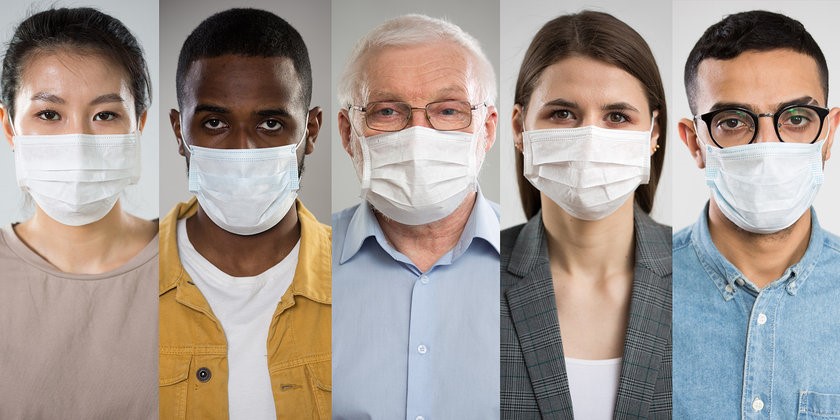Europe’s workplace stress epidemic is killing around 10,000 people a year, according to a new analysis which shows the urgent need for an EU directive on psychosocial risks at work.
There are 6,190 deaths annually through coronary heart disease which are attributable to psychosocial risks at work across the EU 27 and the UK. Another 4,843 people lose their lives through suicide caused by work-related depression. That means psychosocial risks are a greater danger to workers than physical accidents, which killed 3,286 people in the EU in 2022.
Women workers are disproportionately affected by psychosocial risks, such as long working hours, job insecurity and workplace bullying. There is also a geographic imbalance, with deaths linked to workplace stress more prevalent in Central, Eastern and South-Eastern Europe.
International Workers’ Memorial Day
The figures are based on research by the European Trade Union Institute (ETUI) being presented on International Workers’ Memorial Day (April 28) which emphasises that these deaths are preventable and tackling them would save companies and governments tens of billions a year.
That is why the European Trade Union Confederation (ETUC) is today calling again on the European Commission to urgently bring forward a directive on psychosocial risks as part of a Quality Jobs Package. It should set binding obligations on employers to identify psychosocial risks through proper risk assessments, with the involvement of workers and trade unions.
EU data shows a legal obligation is the motivator of nine in ten European companies to take action on health and safety at work, but currently there is no EU legislation dedicated to psychosocial risks at work. The mission letter of Roxana Mînzatu, the Commissioner responsible for social rights, says she “should work on improving Europe’s approach to occupational health andsafety, ensuring healthier workplaces and mental health at work.”
Addressing the issue at a joint ETUC-ETUI conference in Brussels on Monday, ETUC General Secretary Esther Lynch will say:
“Today, is a call for decisive, transformative action. If the EU is truly committed to building a future of fair, inclusive, and sustainable employment, then the Quality Jobs Package must include a robust Directive on preventing work-related psychosocial risks.
“The world of work is changing—rapidly, profoundly, and permanently. Digitalisation, AI robotics, platform work, the green transition, are reshaping how we labour and live. But while these transformations offer new opportunities, they also bring new dangers. Chief among them are the increasing psychosocial risks faced by workers: stress, burnout, anxiety, harassment, isolation, and emotional exhaustion. These are not fringe issues. They are systemic, and they are escalating.
“The EU has long been a global standard-setter in workers’ rights. We led the way on physical safety. Now we must lead the way on mental safety.”
ETUC Confederal Secretary Giulio Romani said:
“The world of work is changing rapidly and the laws protecting people’s health at work must keep pace. The huge rise in telework and digitalisation since the Covid-19 pandemic has further blurred the boundaries between work and personal life, leading to longer working hours and an always-on-call culture that has taken a severe toll on workers’ health.
“If over 10,000 people a year were killed at work because of physical risks, the Commission would rightly be taking urgent action to make workplaces safer. They cannot sit on their hands because people are losing their lives due to psychosocial risks.
“On International Workers Memorial Day, trade unions remember the dead and fight for the living. Today that means ensuring we have laws which protects people’s mental and physical health.”
Full ETUI study on The costs of cardiovascular diseases and depression attributable to psychosocial work exposures in the European Union
Sources for ETUI estimates of deaths caused by cardiovascular diseases and depression attributable to psychosocial work exposures in the European Union:
Coronary heart disease
Attributable to four psychosocial work exposures (PWE) for the year 2015 in 28 European countries. Annual number of deaths due to coronary heart diseases attributable to PWE in 2015: 6 190 deaths (5 092 men, 1 098 women). This means 201 359 years of life lost in 2015 (166 331 men, 35 028 women), based on the age at time of death and the average life expectancy. Four relevant PWE : job strain, effort-reward imbalance, job insecurity, long working hours. Source: Sultan-Taïeb H et al (2022) European journal of public health 2022;32:586-592
Depression
Attributable to 5 psychosocial work exposures (PWE) for the year 2015 in 28 European countries. Annual number of deaths due to depression (suicide cases related to depression) attributable to PWE in 2015 : 4 843 deaths (3 931 men, 912 women). This means 211 689 years of life lost in 2015 (172 885 men, 38 805 women), based on the age at time of death and the average life expectancy. Depression cases attributable to PWE are higher among women than men but there is a higher number of years of life lost because of a higher prevalence of suicide among men than women. Five relevant PWE : job strain, effort-reward imbalance, job insecurity, long working hours and workplace bullying. Source: Sultan-Taïeb H et al (2022). European journal of public health 2022;32:586-592.
https://www.etuc.org/en/pressrelease/workplace-stress-epidemic-killing-10000-people-year


